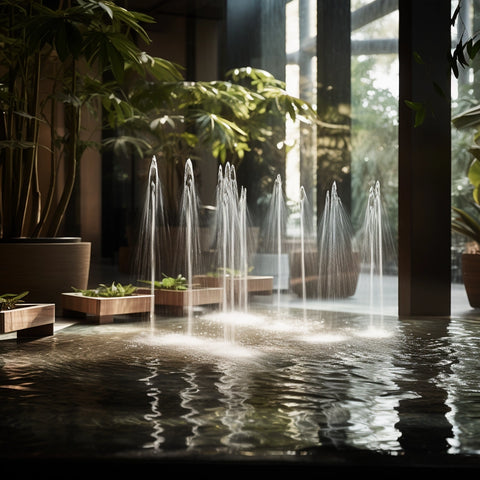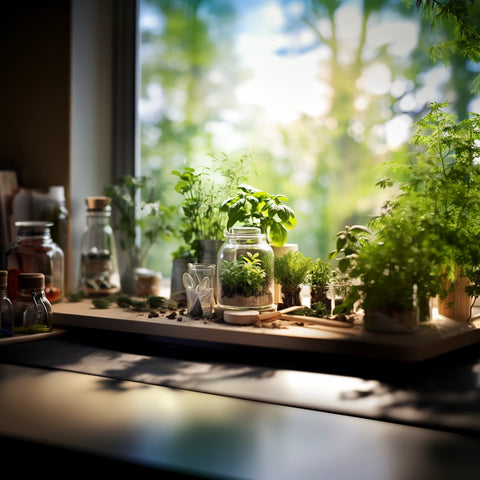Unveiling the Beauty of Biophilic Design
Discover the magic of biophilic interior design – a concept that brings the serenity of nature into your living space. Here are simple tips to effortlessly integrate nature into your home and create a harmonious environment that promotes well-being.
1. Let Natural Light Illuminate Your Space
Embrace Sunshine: Invite natural light into your home by removing obstacles that block sunlight. Consider your windows as frames opening to a beautiful landscape. For a sleep-friendly environment, opt for circadian light bulbs that enhance your sleep quality and morning vitality.
2. Breathe Fresh Air for a Healthier Home
Open Your Windows: Encourage a breath of fresh air by keeping windows open when the weather allows. Connect with the sounds of nature – birds, wind, and rain – for a mood-enhancing experience.
3. Serenity with Indoor Water Fountains
Create a Calm Oasis: Install an indoor water fountain to bring the soothing sound of flowing water into your space. This stylish addition not only elevates your decor but also provides a tranquil acoustic backdrop.

4. Greenery for a Breath of Fresh Air
Embrace Houseplants: Introduce plants into your home as natural air purifiers. Ideal for urban dwellers without a green view, plants enhance both air quality and aesthetics. Don't worry about gardening skills – easy-to-care-for options like cacti and succulents abound.
5. Kitchen Greens for Culinary Delights
Grow Your Herbs: Cultivate a mini herb garden on your kitchen counter or windowsill. Enjoy the visual appeal of natural aesthetics and savor the freshness of home-grown ingredients for your culinary adventures.
6. Choose Natural Materials Mindfully
Toxin-Free Living: Opt for natural materials in your home, steering clear of synthetic alternatives. From flooring to furniture, explore options like linen, jute, wool, bamboo, cork, sustainable timber, stone, and rattan for an eco-friendly and toxin-free interior.
7. Nature-Inspired Shapes for Organic Harmony
Curves Over Angles: Ditch straight lines and right angles for furniture inspired by nature's organic shapes. Embrace imperfections with organic or handcrafted objects, drawing inspiration from the Japanese concept of wabi-sabi.
8. Serene Hues of Nature
Calming Color Palette: Select calming shades like sage green and neutral tones for a serene atmosphere. Vibrant colors found in nature can serve as energizing accents, adding pops of bold hues without overwhelming your space.
9. Art That Resonates with Nature
Bring Nature Indoors: Decorate your walls with artwork that echoes the beauty of nature. Whether it's a forest scene, birds in flight, or a blooming flower, these representations can uplift your mood and infuse your space with the tranquility of the outdoors.
Embrace these biophilic design tips to transform your home into a haven of natural serenity, promoting sustainability, well-being, and a connection to the great outdoors.
